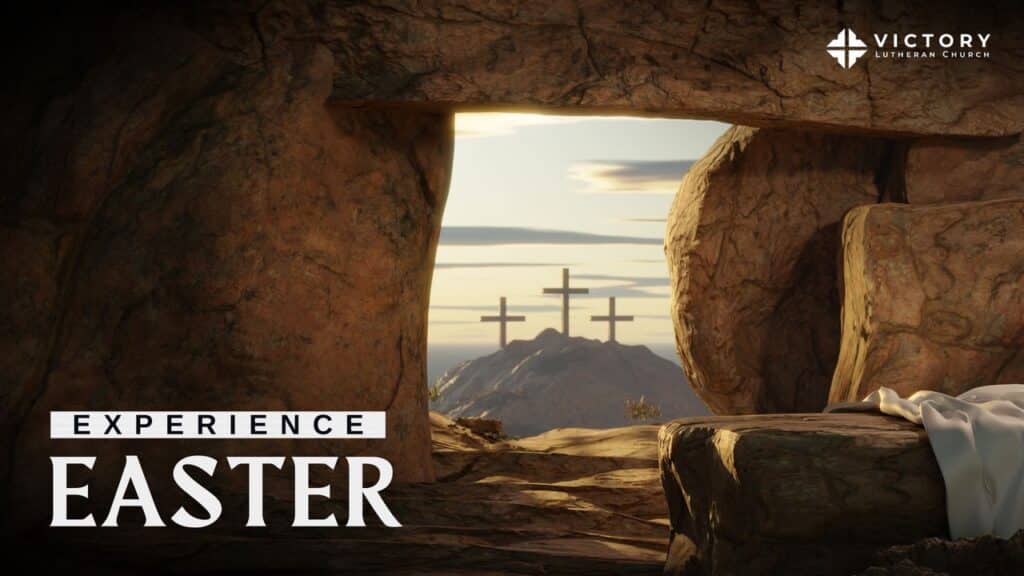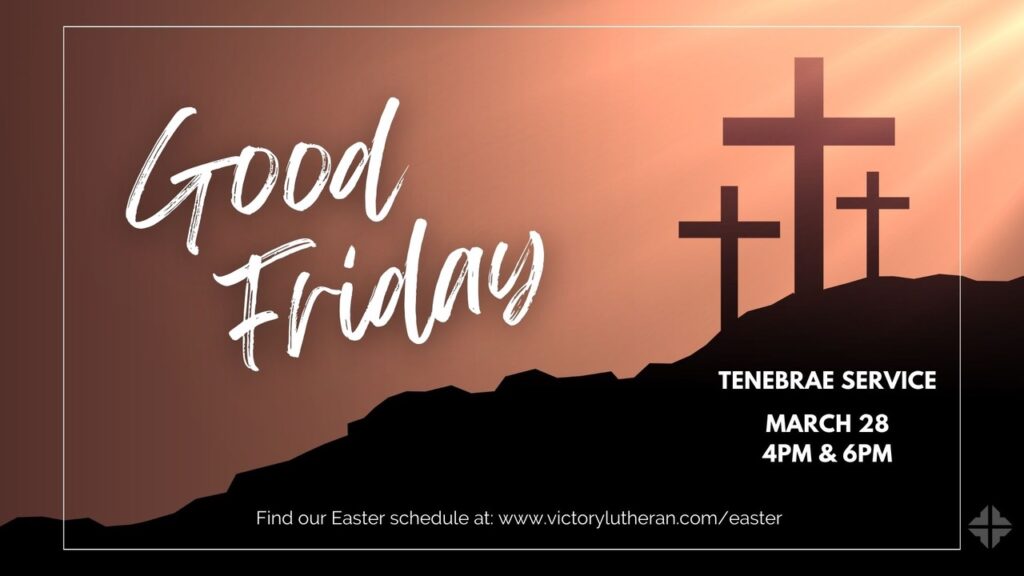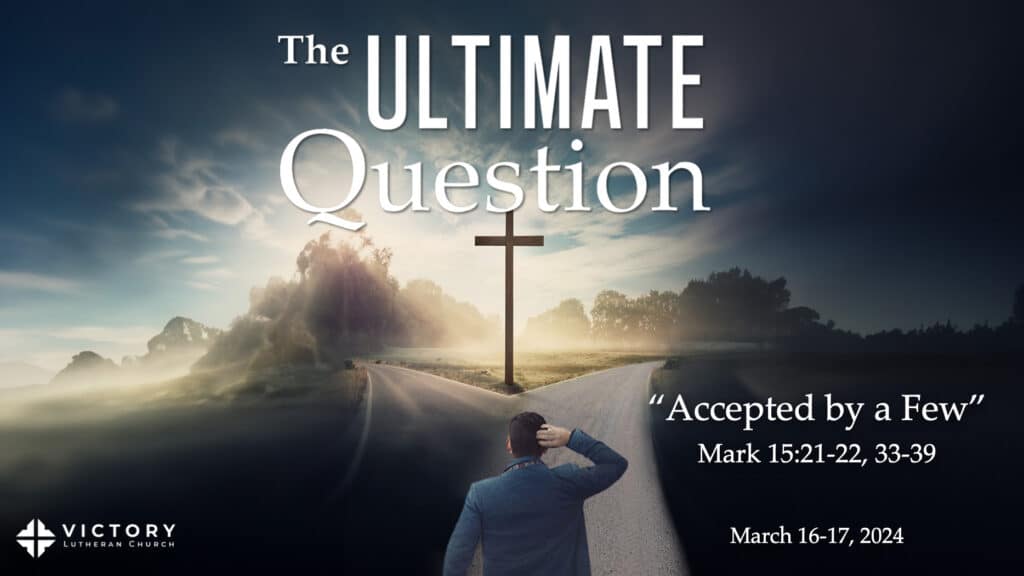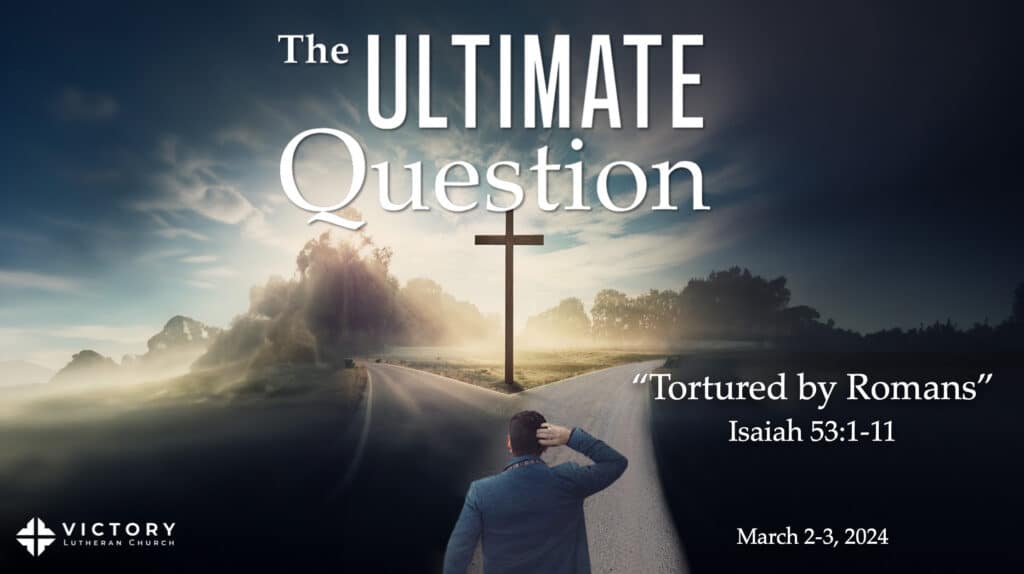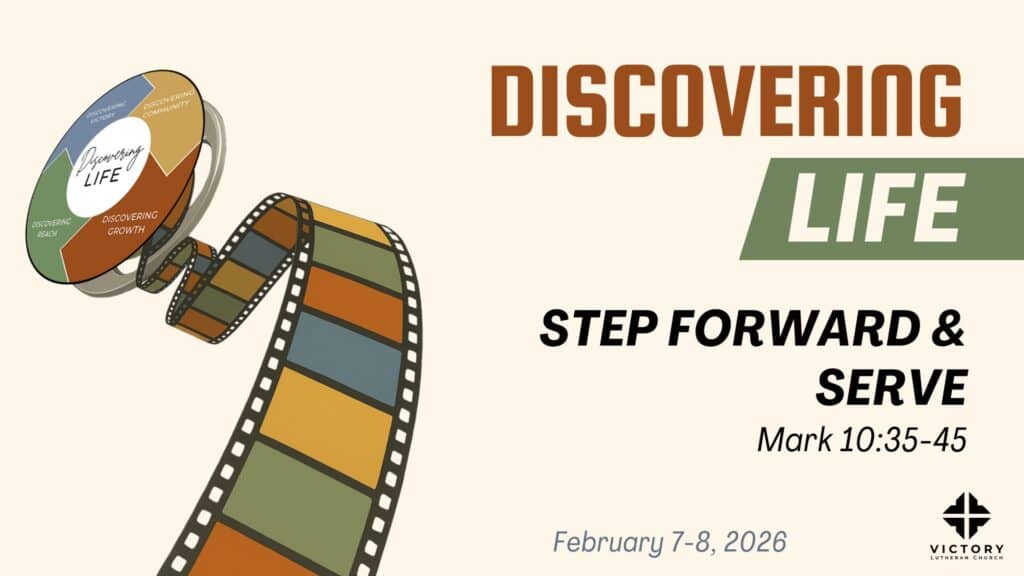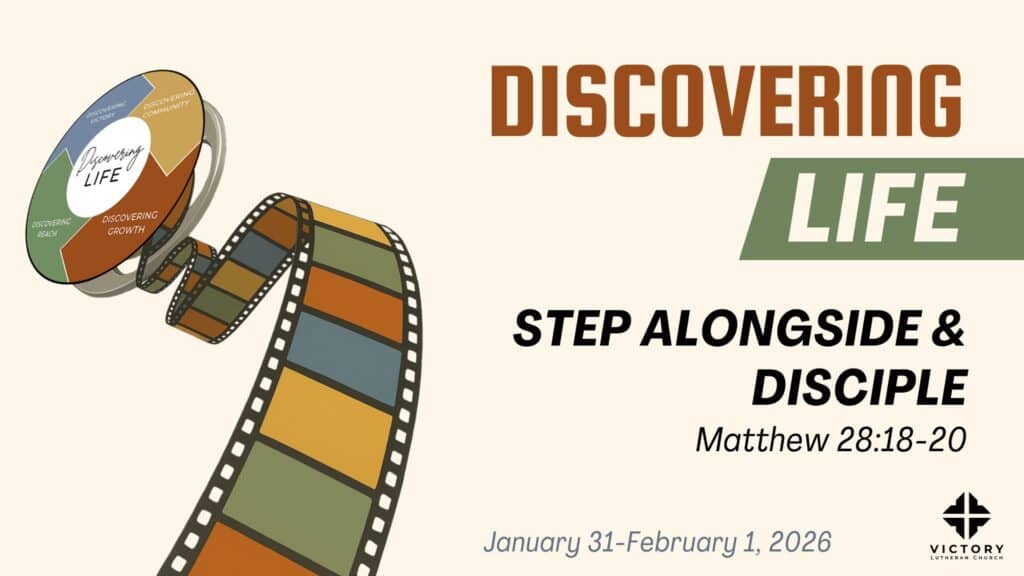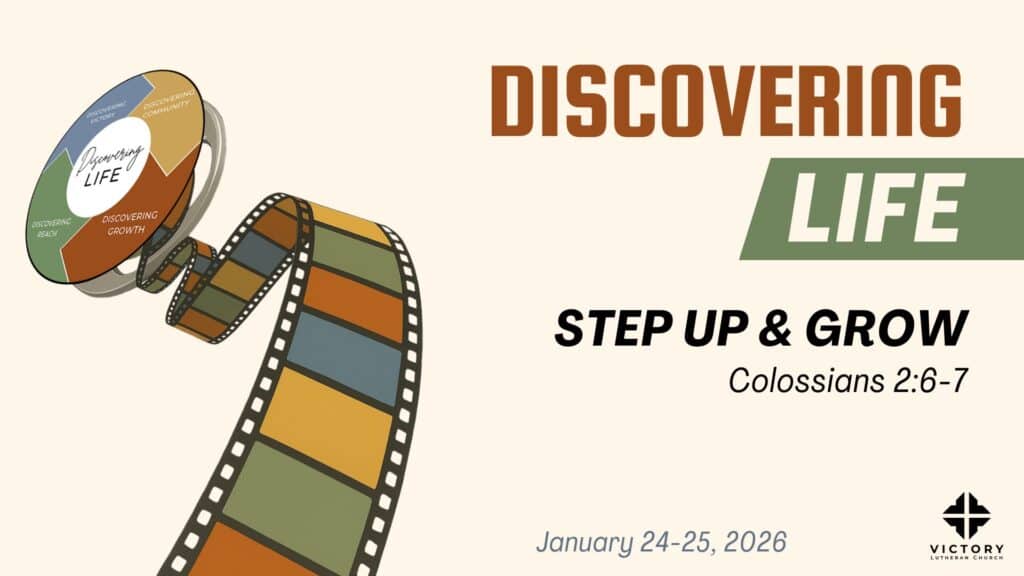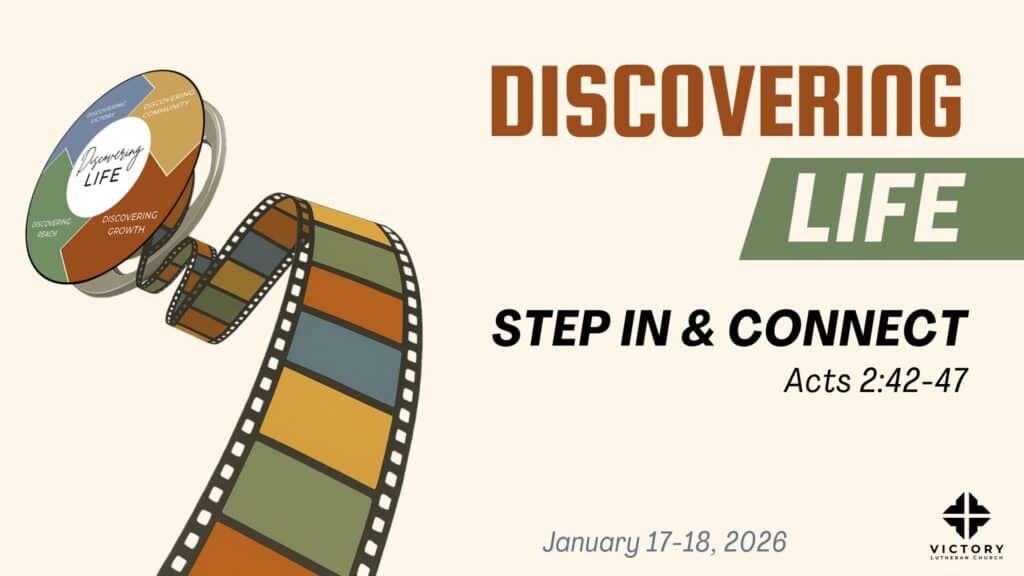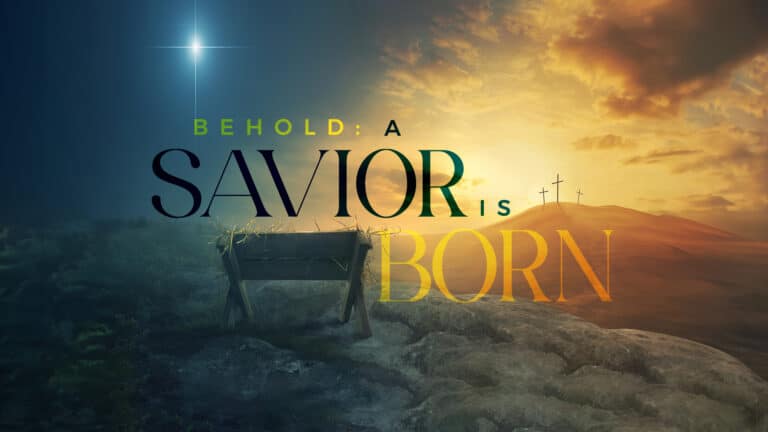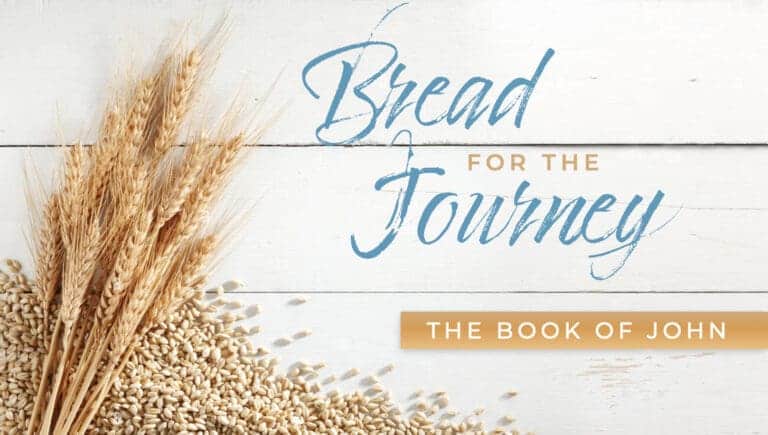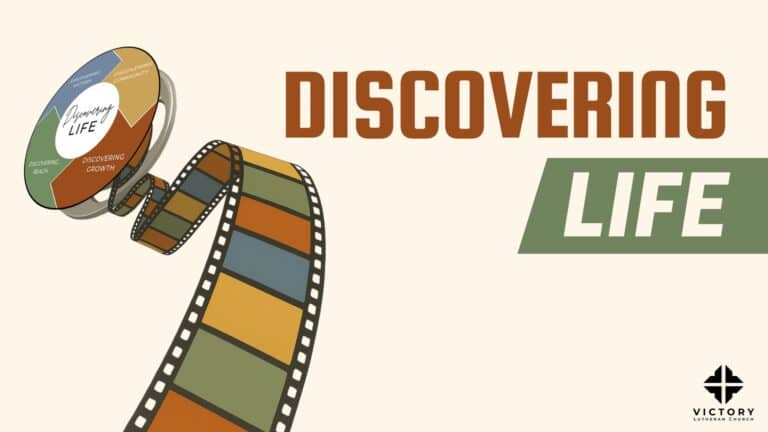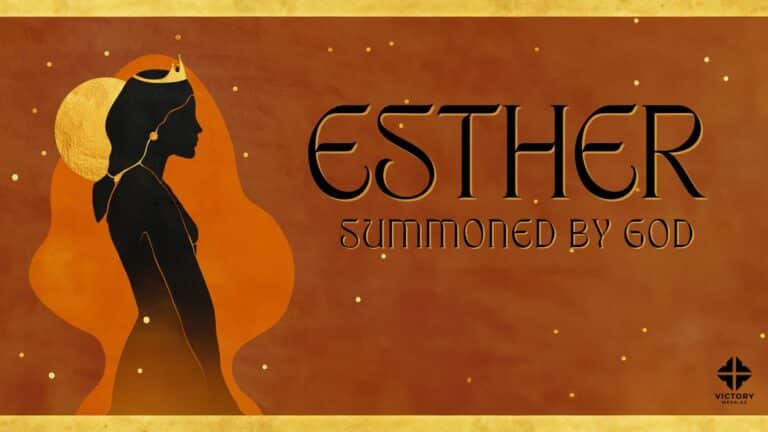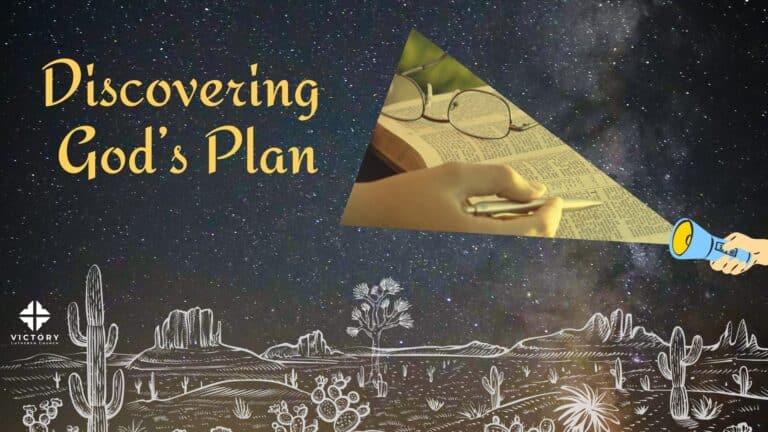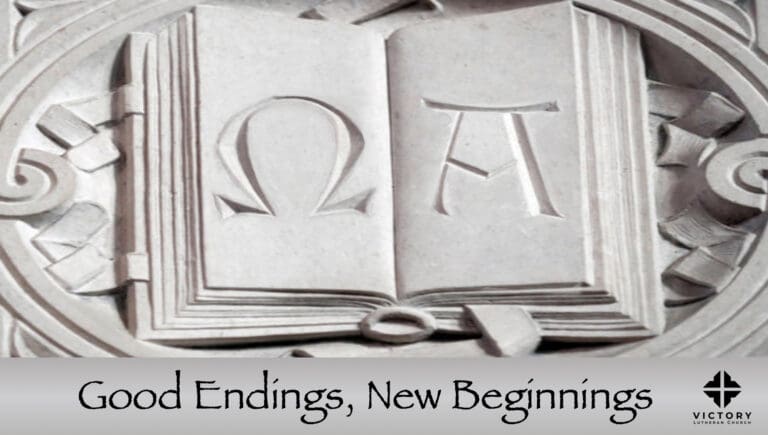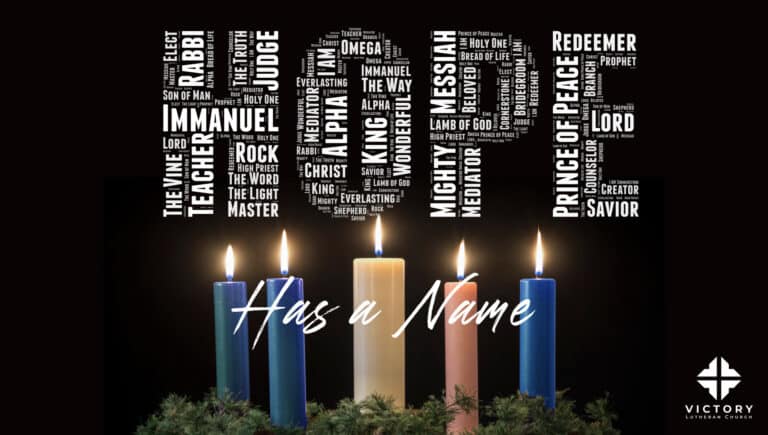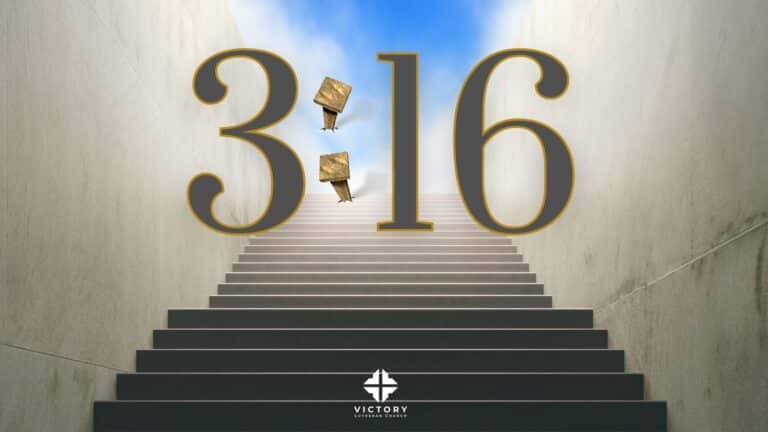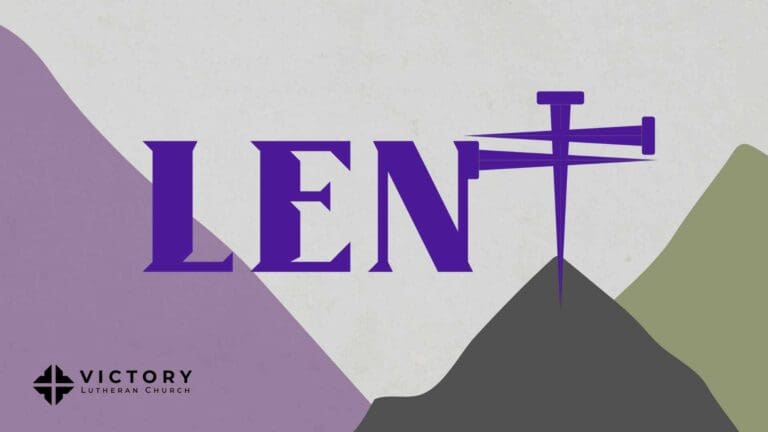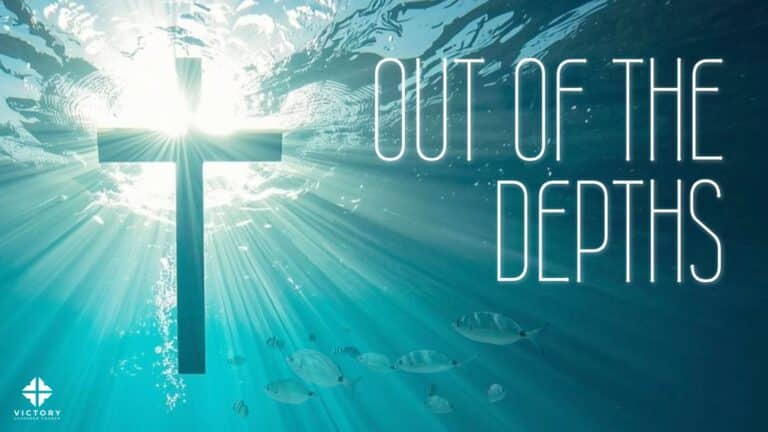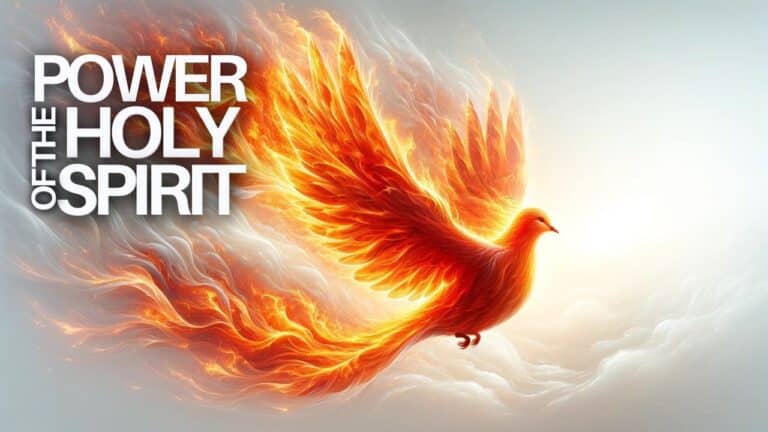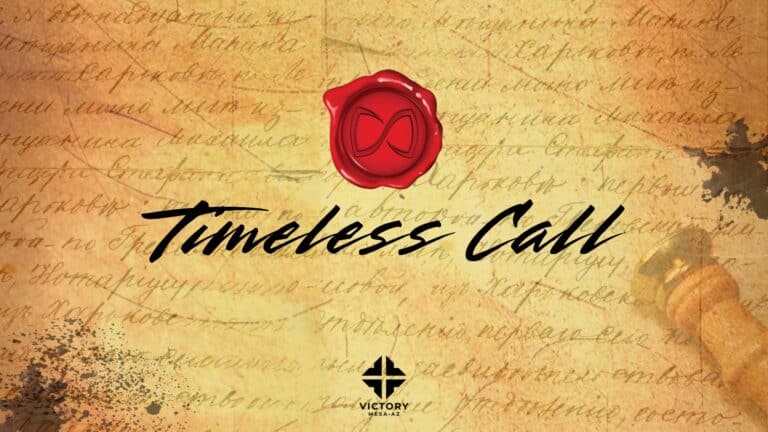Fickle or faithful? That’s what we’re going to be looking at this day. As we look back at that first Palm Sunday, here we’ve already experienced the waving of palm branches, the celebrative spirit of the day. You can feel it, can’t you? It’s just great to be a part of this. And not just here at Victory, but we’re going to remember back to that first Poem Sunday, when Jesus did actually ride into the Holy City on a colt, the foal of a donkey.
I’ve been thinking about what kind of event might be a similar experience for us today. And I’m reminded of parades for sports teams, right? After they’ve won a championship. Some of you know I’m a diehard Minnesota Vikings fan, and even I know those celebration parades exist because I’ve seen them on television in other cities. I know, it’s real. The most recent one, the Chiefs in Kansas City, after their Super Bowl win at that parade. But you know, as striking as that parade was, it was also, it had a tragic ending, right? That celebration ended in tragedy as one person was killed when gunfire erupted, 22 others injured when shots erupted amid the throng of fans and a parade through the city streets led to the city and the nation being stunned and shocked. And I think we still grieve and certainly our prayers are yet with all those who suffered that tragedy. You know, the original Palm Sunday parade. also ended in tragedy, where the festive shouts of joy were turned into jeers of hate, when throngs of people singing the praises of Jesus soon turned a hundred and eighty degrees and became cries of crucifying.
Isn’t it something how fickle people can be? And yet are we so immune to that ourselves? So I want us to read of that original poem Sunday in the gospel of John chapter 12 beginning at verse 12 The next day the great crowd that had come for the festival heard that Jesus was on his way to Jerusalem They took palm branches and went out to meet him shouting Hosanna Blessed is he who comes in the name of the Lord Blessed is the King of Israel Jesus found a young donkey and sat on it. As it is written, do not be afraid daughter Zion. See your king is coming seated on a donkey’s colt. At first his disciples did not understand all this. Only after Jesus was glorified did they realize these things had been written about him and that these things had been done to him. Now, the crowd that was with him when he called Lazarus from the tomb and raised him from the dead continued to spread the word. Many people, because they had heard that he had performed the sign, went out to meet him. So the Pharisees said to one another, see, this is getting us nowhere. Look how the whole world has gone after him. The gospel of our Lord.
Join me in prayer. Living God, we now look into your living word. And we need your Holy Spirit to bring life to our own hearts. To not only hear what you did, Lord Jesus, how the crowds interacted with you, but help us to also see ourselves. And, beyond that, to stop looking at ourselves and see you. most fully and singularly in our mind’s eye and focus. I ask in Jesus name. Amen. Dear friends, grace to you and peace from God our Father and our Lord and Savior Jesus Christ. Amen. I want to kind of do a little poem Sunday brain tease with you this morning. Listen to this account. Kind of picturesque language, and try to get the images in your mind, about the one that I’m going to speak about, okay?
You don’t have to close your eyes, but just kind of imagine along with me. Here we go. The crowds cheered and waved their hands. Many stood upon their tiptoes, hoping to catch a glimpse of their deliverer as he processed by. He’s the one echoed throughout the streets. Many praised his name with hands held high. Was it true? Had the one finally come as truly dreamed? Many hoped, many believed, many perceived he was a new kind of leader who was here to set the captives free. Yet others scoffed and snarled. They simply refused to believe. Look how the whole world has fallen for him. They demurred. Still what could they do but shout even louder against the one? So they stridently declared, he’s nothing but a heretic, he’s not the one who will bring the light and deliver us from our prolonged fright. Got that picture? Cheers and jeers. Now who is the one about whom I was speaking? And many of you might say, well that’s got to be Jesus or Lord and Savior. Cheers and jeers. And while your answer would most certainly be accurate, especially given the text we just read, in this scenario, the one I was speaking of was not intended to be Jesus, because ironically, a similar type of thing happens in our day and age once every four years in this country. As our presidents, no matter what party, are typically heralded in as a new type of leader whom many have come to worship to save the day. And others believe the opposite. In a very interesting kind of way, thousands greet each new president with reverence during the inaugural parade. Thousands upon thousands cheer and wave, practically uttering words like, this one is gonna save us. And it doesn’t matter which party the incoming president belongs to because either way, one side will cheer, One side will jeer, depending on who wins the election.
It’s really a matter of perspective. Now, the reality is that no one other than our Lord and Savior, Jesus Christ, can save humanity from sin’s prolonged night. And unlike Jesus Christ, our nation’s leaders can’t perform miracles, signs, or wonders, much as we might want them to. And do they really ever bring much of anything new? The only point I’m trying to make here is that today, depending on one’s perspective, people will believe in something that they believe to be true about someone, and others will believe to be untrue. People are fickle. Look at how the people who gathered along the streets that first Palm Sunday perceived of Jesus in different ways. Some within the crowds perceived Jesus to be a new socio political military hero type, whom they believed God had ordained to lead a coup against the ruling establishment and occupying oppressors. They shouted, Hosanna! all the while showing their adulation by waving palm branches before Jesus as he rode by. They raised their voices, proclaimed the words of the psalmist, Blessed is he who comes in the name of the Lord. Blessed is the King of Israel. Now contrast that with the religious elite of Jesus day and see how they scoffed and were befuddled by the popularity of Jesus. Why? Because he threatened their position and power. The Bible says, So this Pharisee said to one another, See, this is getting us nowhere. Look how the whole world has gone after him. Historians tell us the palm branch itself served as a national symbol in Judea, and was used to welcome Judaism’s heroes returning from battle. But another way that we can kind of experience something similar to that first Poem Sunday is when our heroes return home from war. And while we don’t use palm branches, we love to have parades and show them our respect by waving hand held American flags. We’ll throw confetti, shout and cheer praises of admiration, just as the crowds did then back in Jesus time. But think on this. Jesus had not led a military campaign against Rome.
Instead, he performed miracles and signs for many to see. He loved people, especially the outsiders, the overlooked, the down and out. He shared the truth of God’s kingdom and made available God’s grace and favor for everyone to receive. He embodied a tender side of compassion and mercy that was attractive to almost everyone. When he said, follow me, he was saying, in essence, I will bring hope and change for all. It’s interesting to think about how people perceived Jesus, isn’t it? Some saw him as this new charismatic king who’d save and lead the masses out of their despair. They saw in him the hope for a better world and the one who could truly save them from their despair. And they knew he hadn’t served in the military and they knew he was not in league with the ruling class. Nevertheless, the crowds perceived he was something beyond special, a unique someone that had never been seen, heard, or experienced before. Yet in Jesus day, the crowd’s perception of Jesus was just as fickle, because while he had come to bring hope and change, he did so in ways they never thought, hoped, or imagined. And yet, with full understanding of what lay before him, Jesus, son of man, son of God, rode into that eternal city as the dawn of the Father’s everlasting light was just emerging. And wow, did Jesus ever make a stand. He waged a war against the established ways and the Pharisaic religious elite. He made known to all that the ways of God had been distorted and that a new way of salvation had finally come. And for his stand he was given a hero’s reception, treated like the prophesied coming king. And yet for Jesus himself he knew the fickle nature of the crowds and he knew that his victory was yet to be accomplished. for which he would have to endure unimaginable pain and suffering and ultimately death.
This account of the triumphal entry of Jesus into Jerusalem Reveals crowds who hailed him as the Messiah, spreading their cloaks and palm branches, shouting, Hosanna, blessed is he who comes in the name of the Lord. And while that atmosphere was electric with anticipation and adoration, we know that this jubilant spirit would soon turn to jeers of those who would cry out for his crucifixion just five short days later. It’s a poignant reminder of the fickleness. of human nature and how quickly praises can turn to scorn. But amidst the tumultuous sea of emotions, the fickle nature of people, one thing, one person, remained constant. And that’s Jesus Christ. He’s the one who’s faithful. Knowing full well the path that lay ahead of him, suffering, rejection, and ultimately the cross, he still yet remains steadfast, unwavering in his commitment to fulfill the will of the Father. So I think we can agree, people can be fickle. I want us to consider three ways in which Jesus is seen to be the only one who’s faithful. First is Jesus unwavering commitment to Despite knowing the fate that awaited him, Jesus did not waver in his commitment to the Father’s plan of salvation. Luke writes, as the time approached for him, that’s Jesus, to be taken up to heaven, Jesus resolutely set out for Jerusalem.
He knew what lay ahead and he went straight for it. Jesus willingly walked the road to Calvary to bear the weight of our sins. upon His shoulders. And in doing so, He demonstrated unparalleled love and devotion, showing us what true commitment and faithfulness looks like. Jesus is the one who is faithful. Second, consider Jesus sacrificial love. Jesus journey to the cross was not merely an act of duty, but an expression of sacrificial love. He laid down his life willingly, not out of compulsion, but out of love for each and every one of us. Jesus said in John 10, the reason my father loves me is that I lay down my life only to take it up again. No one takes it from me, but I lay it down of my own accord. I have authority to lay it down and authority to take it up again. This command I received from my father. Jesus death was the ultimate sacrifice, the atonement for our sins, through whom we are made at one with God, paving the way for reconciliation. For He is the atoning sacrifice for our sins, and not only for ours, but for the sins of the whole world. Because Jesus is the one who is faithful. Finally, consider Jesus eternal redemption. Through his death and resurrection, Jesus secured for us the promise of eternal redemption. He conquered sin and death once and for all, and offers to us the gift of forgiveness and that of Christ’s righteousness as our own through faith in him, and then the reality of new life now, and the promise of everlasting life to come.
Paul writes in Ephesians one, his unchanging plan. Has always been to adopt us into his own family by sending Jesus Christ to die for us. And he did this because he wanted to now all praise to God for his wonderful kindness to us and his favor that he’s poured out upon us because we belong to his dearly loved son. So overflowing is his kindness to us that he took away all our sins, the blood of his son, by whom we are saved. Jesus faithfulness ensures that we have access to the Father, that we can experience the fullness of God’s grace and mercy, and actually become children of God. All because Jesus is the one who’s faithful. Who’s fickle? We can be honest. We are. Who is faithful? Jesus. Always, in the midst of a world marked by shifting allegiances, fleeting loyalties, let us fix our eyes upon Jesus, the author and perfecter of our faith. Let us draw strength from who He is and what He has done, knowing that He is faithful and true, yesterday, today, and for every tomorrow.
Let us respond with lives of faith and gratitude, living out the message of the cross in our own words and deeds. Palm Sunday. What a great day to celebrate together with you. You know, it marks the beginning of Holy Week, the week in the church year where we focus on Jesus last week in Jerusalem. And this week here, Holy Week, Victory, through Scripture reading, sermons we’ll hear, songs we’ll sing, we’ll be transported back to Jerusalem, to over 2, 000 years ago, and we’ll be going various places. We already started here today being part of that Palm Sunday crowd, shouting our praises to our King, riding triumphantly into King David’s city. And as this week progresses, we’ll go with Jesus to the upper room, see him institute the sacrament of Holy Communion, pray in the garden, be betrayed by one of his disciples and deserted by all the rest. He will be arrested, tried, beaten, crucified. We’ll see a lot of evil in these events, people at their worst. And we’ll be asked to ponder all of this and ask, what’s this week all about? You might be up for one of the most important weeks of your life. As you go through Holy Week this year, I want to encourage you to not just see the other people in the stories, but paint yourself into the picture and the places we visit.
As you do, I think you’ll realize that at times, we are all part of that fickle crowd in Jerusalem. We’ll find at times we’re ready to praise Jesus so loudly that no one can keep us quiet. We’ll also find that because of our sin, we are prone to abandon Jesus. We don’t always speak up for our faith when we should. We don’t always acknowledge that we are children of God by the things we say or do or think. You might even find a bit of Judas in us, willing to betray our Lord for whatever type of silver that sin will present in front of us. And we’ll find that it is, indeed, our sin that condemns Jesus to be nailed to that cross. We’re going to find that in reality, while it’s so easy for us to Be angry or scoffing for those who treated our Savior so badly that week in Jerusalem, that if we were there, would we be any different? But we can also know that the ugly sights, the horrific sounds, the undeniable pain that our Savior will suffer, it’s not for Himself, but it’s for you, it’s for me, it’s for our sins. And when we look at the cross on Good Friday, the road that leads us there, we’ll see that Jesus walked that road with you and me in mind. He did it so that we may be declared sinless, spotless before our holy God, and we’ll see that there’s perhaps no more beautiful, no more important week in our lives than this week, Holy Week. And so as we journey through this season of Lent and this Holy Week together, may we be reminded of the depth of Jesus love. And may we walk in the footsteps of our faithful Savior, proclaiming His gospel through our lives to all who will hear. Join me in prayer. Gracious God, Thank you for the reminder of Jesus triumphant entry into Jerusalem and the sobering reality of the events that followed. Help us to turn our attention from ourselves and rather to fix our eyes upon Jesus and His faithfulness and His salvation that He purchased with His own life for us. May we find comfort and assurance in His unwavering commitment, His sacrificial love, And rest in the eternal redemption for our lives through faith in him. I ask in his precious name, amen.

